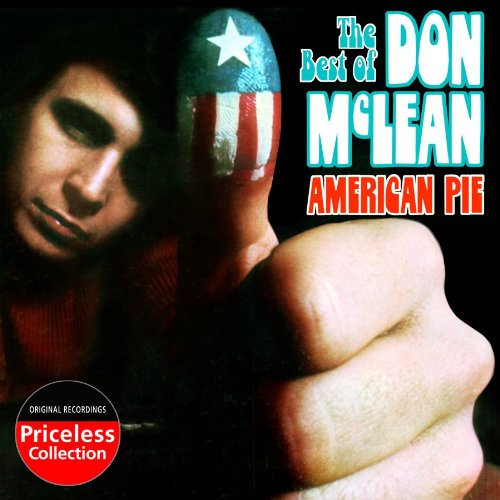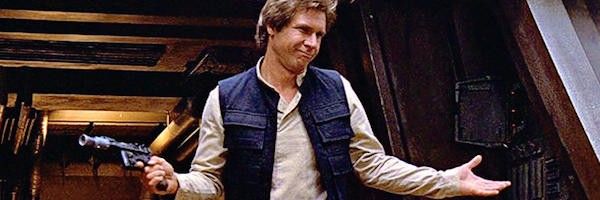We’re all digital nomads now. We’ve been kicked off of the social media planets we helped make famous. So, like the Robinson family in Lost in Space, we wander around the internet galaxy looking for habitable and hospitable social media planets to make our new home.
- From Facebook to MeWe
- From Twitter to Parler
- From YouTube to Vimeo to Rumble
- From FoxNews to NewsMax and OANN
- From Drudge Report to Bongino Report
- From Hot Air to The Gateway Pundit
We ask our Twitter followers to follow us on Parler. Our Facebook friends to find us on MeWe. Some do. Most don’t. “I don’t feel like re-establishing,” they say. (Just wait.) We are the mythical marauders of the internet’s Wild West:
When a myth shows the Nomad archetype in midlife, the story tells of an aging adventurer, savvy but going it alone. If older generations are present, they represent an older Prophet and a younger Hero—never the other way around. The Nomad is neither as dutiful (or naive) as the younger Hero nor as transcendently wise (or wicked) as the older Prophet. The best the Nomad can hope to experience is a brush with others' greatness. In the Star Wars trilogy, Han Solo looks down the age ladder and sees the good Luke Sky-walker and Princess Leia—and looks up and sees the wise Obi-Wan Kenobi and the evil Darth Vader. These are times of Crisis, during which the Nomad does the dirty work with little expectation of public praise or reward.
The Fourth Turning: What the Cycles of History Tell Us About America’s Next Rendezvous with Destiny
Yeah, it sucks moving around a lot. Just ask a military brat. Plus, chances are the internet’s overlords will soon expel us from our new digital homes. They hate us, so why wouldn’t they?
Space Invaders Will Find Us #
Digital planets that seem perfect upon arrival quickly show their nasty nature. Our mere presence on this platforms will attract hostile visitors from strange places who burn our villages, steal our women, and short-circuit our wise robot with magnets and water.
If that happens, we’ll pack up our stuff and head to another orbiting rock. That will suck, but we’re getting used to being nomads. Most of us are, after all Gen Xers, the generation nobody watch.
In The Fourth Turning, William Strauss and Neil Howe define the Nomad generation archetype as a smallish generation squeezed between world-changing Prophets (Boomers most recently) and the order-restoring Heroes (Millennials, supposedly). Strauss and Howe refer to my Nomad generation as 13ers, as in the 13th American-born generation. Most people know us as Generation X after Douglass Copeland’s book by that title. Both titles indicate no one cared enough to give us an actual label.
For Gen Xers, and perhaps for conservatives in general, wandering is our thing. If the internet overlords think they can break our spirits by kicking us off their digital planets, they’re wrong. We don’t like packing up and moving, but we’re good at it. Better than the generation on either side. We’re the best damn nomads this side of F. Scott Fitzgerald and George S. Patton.
A Generation Lost in Space #
Oh, and there we were all in one place, a generation lost in space
With no time left to start again
So come on, Jack be nimble, Jack be quick, Jack Flash sat on a candlestick
‘Cause fire is the devil’s only friend
— Don McLean, American Pie, the Gen X themesong

Or, as Strauss and Howe described Nomads in The Fourth Turning:
“Now once more the belt is tight and we summon the proper expression of horror as we look back at our wasted youth,” F. Scott Fitzgerald said after the crash that hit his peers at the cusp of what should have been their highest-earning years. “A generation with no second acts,” he called his Lost peers.
The financial crisis of 2007 to 2015 did a number on Gen X’s retirement plans. But the Trump era gave the greatest economic recovery in US history. Now, a fresh wrinkle of the Crisis era—a totally fraudulent election—has kicked us off our digital planets and sent us flâneuring about the galaxy looking for new homes. The Masters of the Universe think they’ve won, just as F. Scott Fitzgerald thought his generation was doomed in 1932.
But Strauss and Howe have more on the last Nomad generation:
This “no second act” generation lent America the grit to survive dark global emergencies and, in the end, to triumph over them. In the Great Depression, the Lost were hard-hit but refused to ask for public favors. In World War II, they manned the draft boards, handed out the ration coupons, mapped the invasions, and dispatched the bomber fleets. They gave the orders that killed thousands but saved millions. From “blood and guts” generals to “give ‘em hell” presidents, the Lost knew how to prevail over long odds and harsh criticism.
Generation X’s second act may have begun with the Tea Party, but something tells our best work is yet to come. Though no one will remember what the generation was called (Boomers think we’re Millennials and Millennials think we’re Boomers), the stars will shine in history the way Fitzgerald, Patton, and Truman do.
From The Fourth Turning by Strauss and Howe:
Nomad generations—what Christian Slater refers to as “a long list of dead, famous wild people”—have always been the ones who lose ground in wealth, education, security, longevity, and other measures of progress. Yet they have also been the generations who lay at the fulcrum between triumph and tragedy, the ones who hoist their society through the darkest days of Crisis.
My friends, the darkest days of the Crisis are upon us (about which more in future posts, God willing). Get in shape and have your Go-Bags packed and ready. We’re about to do some hoisting.
We have not yet begun to fight.
…to be continued…
Note: Strauss and Howe define Gen X as birth years 1961 through 1981. This is earlier than demographers. Demographers look at birth trends to define a generation, but historians use life events. If you’re too young to remember JFK’s assassination, you can’t be a Boomer.

